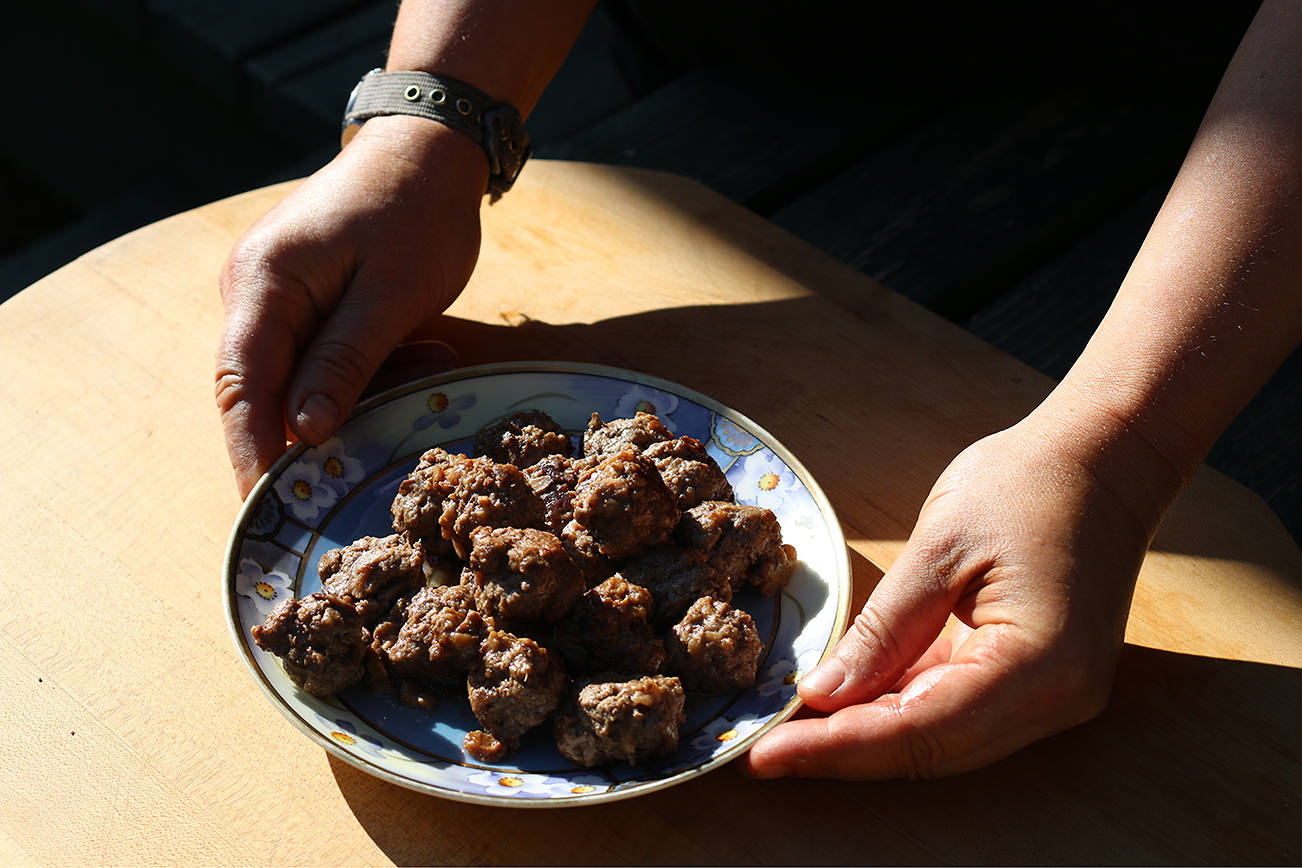Submitted by Kwiaht
Kwiaht presents its second annual Lopez Island Camas Festival at Sunnyfield Farm, 6363 Fisherman Bay Road, on Saturday, Sept. 23 from 4 to 6 p.m. Admission is free, as are tastings of a variety of sweet and savory dishes made with neglected native food plants such as camas, “indian celery” and salal that are now being grown experimentally in Kwiaht’s Hummel Lake research garden.
Camas was a staple food of pre-contact native peoples in the Salish Sea, grown in small gardens where it could be cultivated, weeded and fertilized with seaweeds and compost.
“Old camas gardens were like underground orchards,” said Kwiaht Director Russel Barsh. “It may have taken several years to establish the first generation of bulbs, but a thriving camas garden could stay productive for decades.”
No wonder that camas gardens were carefully guarded and often surrounded by rock walls.
Insufficiently cooked camas tastes soapy and contains inulin, an indigestible carbohydrate also found in Jerusalem artichokes. Prolonged cooking breaks inulin down into fructose, resulting in brown, partly caramelized bulbs that are creamy and sweet with a hint of nuttiness. They also appear to be relatively rich in protein, compared to most vegetables.
Native peoples baked their camas in pits packed with hot rocks and damp leaves. Today, camas can be processed easily in a slow cooker or “crockpot.” But it still takes 48 hours, Murphy says, to break down the indigestible inulin completely.
Instructions for processing raw camas at home and recipes from the first camas festival are already available on-line as a downloadable cookbook at Kwiaht’s website.
Kwiaht’s first camas festival in 2016 premiered camas ice cream, camas salsa, camas stuffed meatballs, and nutty-tasting chocolate spreads sweetened only with camas, all served with freshly grilled salmon. This year the camas festival expands its camas offerings and adds some surprisingly tasty uses of lomatium and salal, ranging from camas cupcakes with a salal buttercream icing, to an exotic bright red salal-lomatium zatar seasoning mix, and a limited edition sunnyfield goat cheese coated with salal.
Kwiaht’s work reviving neglected local food plants has been supported by the Mills-Davis Foundation and the Washington State Department of Agriculture.



